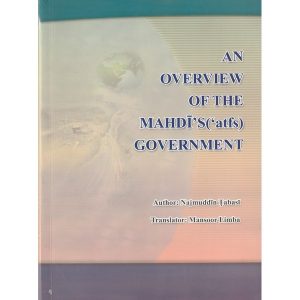Description
A series of letters debating Shi’i and Sunni beliefs between the late Shi’i scholar Sharaf al-Din, and the late Sunni scholar and head of Al-Azhar university of that time, Al-Shaykh Salim al-Bishri al-Maliki. The written form of the debates in book, has the advantage that the two parties had the opportunity to provide the best possible replies they could give. The book is written without any disrespect and under mutual fairness. This is one of the most important books that provides a well-argued account of Shiite beliefs, drawing upon reliable sources with a persuasive tone.
HEAVILY SUBSIDIZED BY WWW.ISLAMICTHOUGHT.CO.UK







Reviews
There are no reviews yet.